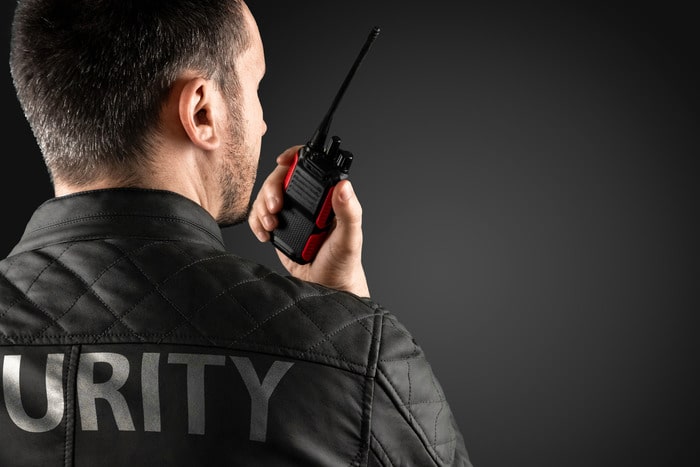
- May 3, 2024
- |security guard company
- | 0
Off-Duty Officers in Security –
The presence of off-duty police officers in security roles carries significant psychological implications for both potential wrongdoers and members of the public. Drawing upon their training, experience, and authority, off-duty officers exude a sense of vigilance and preparedness that can serve as a powerful deterrent against criminal activity. In this article, we delve into the psychology of off-duty officers in security roles and examine their impact on deterrence, highlighting how their mere presence can influence behavior and promote a safer environment.
The Perception of Authority and Vigilance
One of the key psychological factors contributing to the deterrent effect of off-duty officers is the perception of authority and vigilance they convey. Off-duty officers are recognized symbols of law enforcement, embodying the power and legitimacy of the criminal justice system. Their presence sends a clear message to potential wrongdoers that law enforcement is actively monitoring the area and prepared to intervene if necessary. This perception of authority and vigilance creates a psychological barrier that dissuades individuals from engaging in criminal behavior, as they are less likely to risk detection and apprehension in the presence of off-duty officers.
The Fear of Consequences
Another psychological mechanism underlying the deterrent effect of off-duty officers is the fear of consequences associated with criminal activity. Off-duty officers possess the legal authority to enforce laws, make arrests, and use force if necessary. Their presence serves as a constant reminder to potential wrongdoers of the potential consequences of their actions, including arrest, prosecution, and incarceration. This fear of consequences acts as a powerful deterrent, influencing individuals to refrain from engaging in criminal behavior out of concern for the repercussions they may face.
The Influence of Social Norms
Off-duty officers also contribute to the reinforcement of social norms and expectations regarding lawful behavior. As members of law enforcement, off-duty officers embody the values of order, respect for authority, and adherence to societal norms. Their presence in security roles reinforces these norms and serves as a model of behavior for members of the public. Individuals are more likely to conform to social norms when they perceive that others, particularly authority figures like off-duty officers, are also adhering to those norms. This phenomenon, known as social proof, further strengthens the deterrent effect of off-duty officers by promoting a culture of compliance and lawfulness.
The Role of Perceived Risk and Uncertainty
Perceived risk and uncertainty also play a significant role in the deterrent effect of off-duty officers. The presence of off-duty officers introduces an element of unpredictability into the environment, as potential wrongdoers cannot accurately predict when or where they may encounter law enforcement. This uncertainty increases the perceived risk of engaging in criminal behavior, as individuals are less confident in their ability to avoid detection or evade capture. The prospect of facing uncertain consequences acts as a powerful deterrent, dissuading individuals from taking actions that may put them at risk of encountering off-duty officers.
The Impact of Visibility and Accessibility
The visibility and accessibility of off-duty officers further contribute to their deterrent effect. Unlike uniformed officers who may be perceived as more formal and imposing, off-duty officers often blend seamlessly into their surroundings, making their presence less conspicuous. This subtle approach allows off-duty officers to observe and monitor the environment discreetly, increasing their effectiveness in detecting and deterring criminal activity.
Additionally, off-duty officers are often more accessible to members of the public, allowing them to interact directly with individuals and provide assistance or intervention when needed. This accessibility reinforces the perception of security and contributes to a sense of reassurance among members of the community.
The psychology of off-duty officers in security roles plays a crucial role in shaping perceptions of deterrence and promoting a safer environment. Through their embodiment of authority and vigilance, fear of consequences, reinforcement of social norms, introduction of perceived risk and uncertainty, and visibility and accessibility, off-duty officers exert a powerful influence on behavior and decision-making.
By leveraging these psychological mechanisms, off-duty officers contribute to the prevention of crime, the maintenance of public safety, and the promotion of a culture of lawfulness within communities. As such, their role in security should be recognized and valued as an essential component of effective crime prevention strategies. Contact us to learn more.


